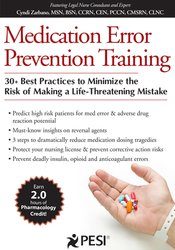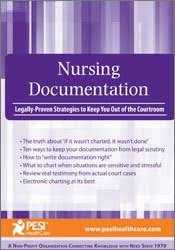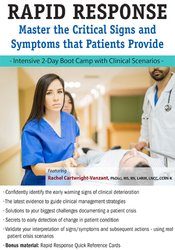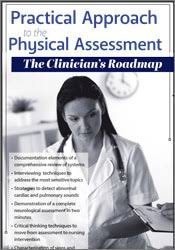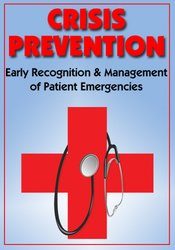🌟 New Year Offer 🌟
Celebrate 2026 with 30% OFF on all products! Use code: NEWYEAR2026. Hurry, offer ends soon!
Available for Pre-Order. This product will be delivered within a few days.
Rachel Cartwright-Vanzant – Impending Doom
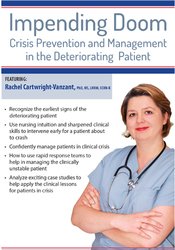
- Recognize early signs of a patient’s decline
- You can use your clinical skills and nursing intuition to intervene quickly when a patient is about to crash.
- Manage patients in clinical crises confidently
- How to use rapid response teams for managing clinically unstable patients
- To help patients in crisis, analyze exciting case studies
Do you, as a nurse/clinician, recall a patient who seemed like it was going downhill right in front of your eyes? If so, do you wonder if there was anything that could have prevented this clinical crisis from occurring?
What should you do with subtle signs and symptoms you find in your patient?
How can you spot the early signs of impending doom in a patient and intervene before it becomes a crisis?
Your job is not to write good code, but to prevent bad code from ever being written. You must recognize the signs and interpret them within the context of the clinical picture to be able to help the patient.
This workshop examines subclinical signs, which are the first warning signs of a problem. You will leave with a clearer understanding of the body’s complex, interrelated organ systems and be able to break them in to their component parts to understand how one organ system can cause a sign or symptom in another organ system.
Would you like a gift? Rachel Cartwright-Vanzant – Impending Doom ?
Today’s nurses care for more patients with higher acuity than ever before. You must identify the risk factors and recognize warning signs to avoid crisis. The best thing about nursing is the ability to see the bigger picture. The art and science behind nursing are vital to effective nursing. “see it coming”. Rachel Cartwright-Vanzant, PhD., MS., LHRM., CCRN-K will share with you the most effective and useful ways to put it all together-To-The-Test strategies to detect clinical changes in a deteriorating patient.
Course Features
- Lecture 0
- Quiz 0
- Duration Lifetime access
- Skill level All levels
- Students 0
- Assessments Yes

